Lisa Fonssagrives is considered by many to be the world’s first supermodel. Her image appeared on over 200 Vogue covers
Fonssagrives was born in Sweden and raised in Uddevalla. As a child, she took up painting, sculpting and dancing. She went to Mary Wigman's school in Berlin and studied art and dance. After returning to Sweden, she opened a dance school. She moved from Sweden to Paris to train for ballet and worked as a private dance teacher with Fernand Fonssagrives, which then led to a modeling career, and she would say that modeling was "still dancing". While in Paris in 1936, photographer Willy Maywald discovered her in an elevator and asked her to model hats for him. Fonssagrives' photographs were then sent to Vogue, and Vogue photographer Horst took some test photographs of her. (She was rather short at 5'7" compared to today's super models.)
Before Fonssagrives came to the United States in 1939, she was already a top model. Her image appeared on the cover of many magazines during the 1930s, 1940s and 1950s, including Town & Country, Life, Time, Vogue, and the original Vanity Fair. She was reported as "the highest paid, highest praised, high fashion model in the business".The down to earth Fonssagrives once described herself as a "good clothes hanger".
She worked with fashion photographers including George Hoyningen-Huene, Man Ray, Horst, Erwin Blumenfeld, George Platt Lynes, Richard Avedon, and Edgar de Evia. She married Parisian photographer Fernand Fonssagrives in 1935; they divorced and she later married another photographer, Irving Penn, in 1950. She went on to become a sculptor in the 1960s and was represented by the Marlborough Gallery in Manhattan.
Fonssagrives died, aged 80, in New York, survived by her second husband, Irving Penn and her two children: her daughter Mia Fonssagrives-Solow, a costume designer, and her son, Tom Penn, a designer.
The Elton John photography collection auction held by Christie's on October 15, 2004 sold a 1950 Irving Penn photograph of his wife, Lisa Fonssagrives, for $57,360 [via wiki]


Sand Fence, Lisa Fonssagrives 1930s
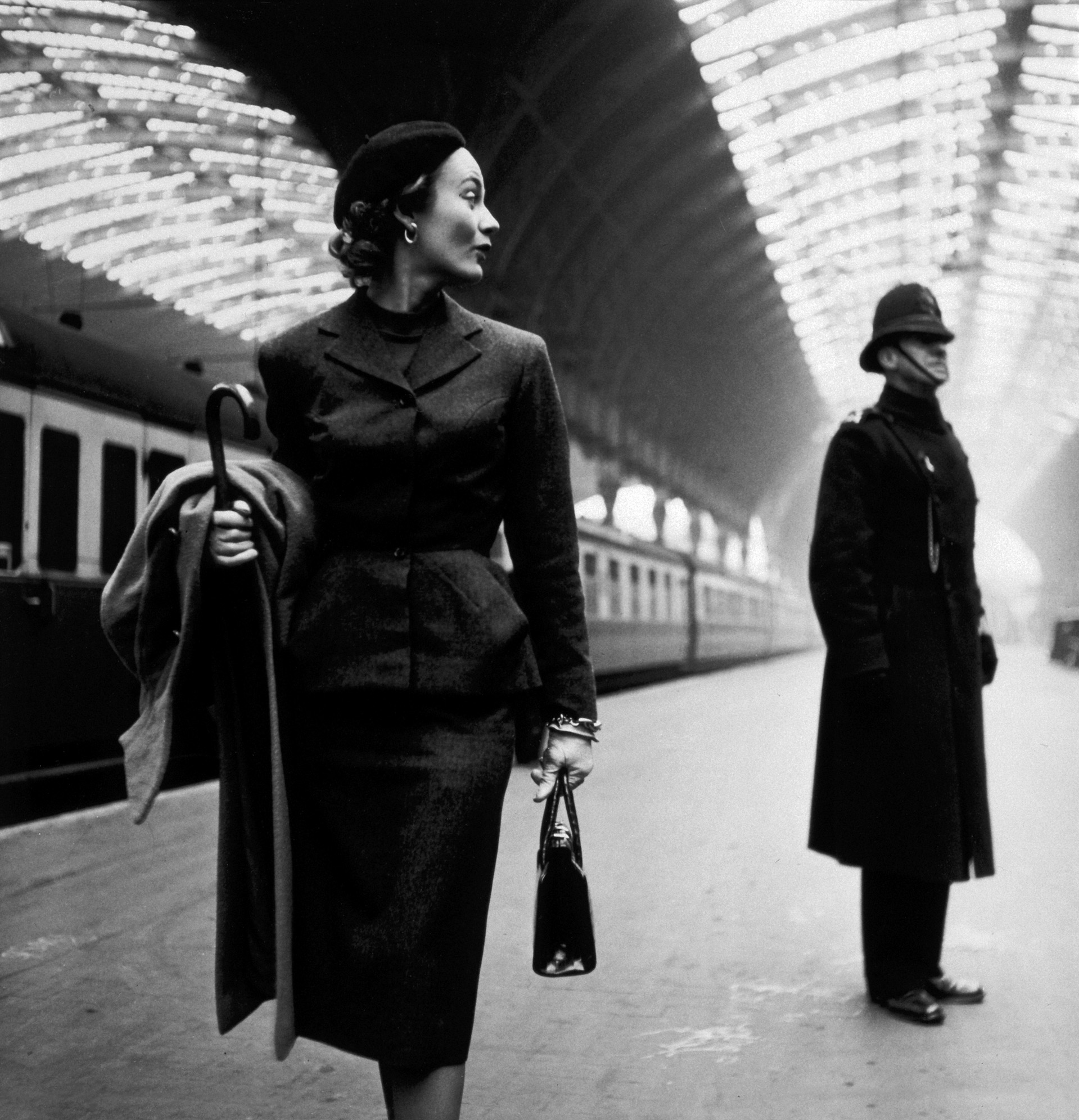
Lisa Fonssagrives at Paddington Station, London, 1951
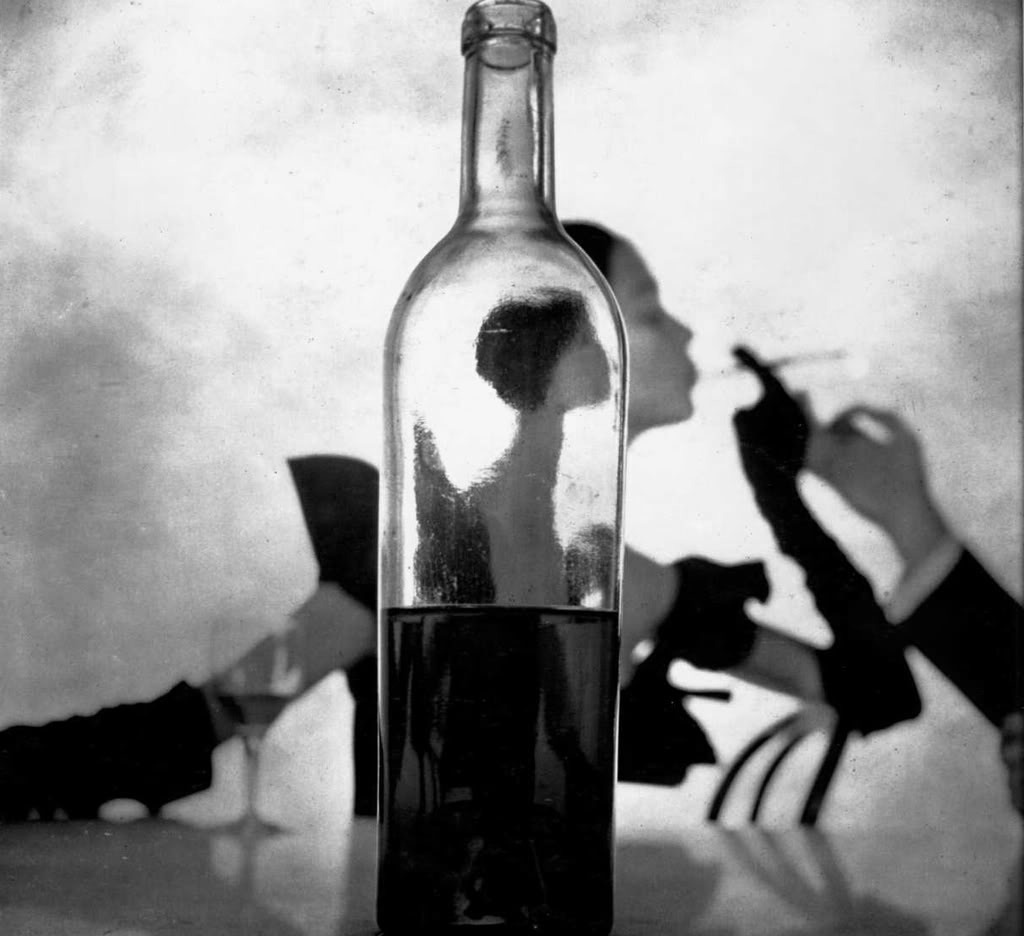
Lisa Fonssagrives-Penn © Irving Penn, 1949


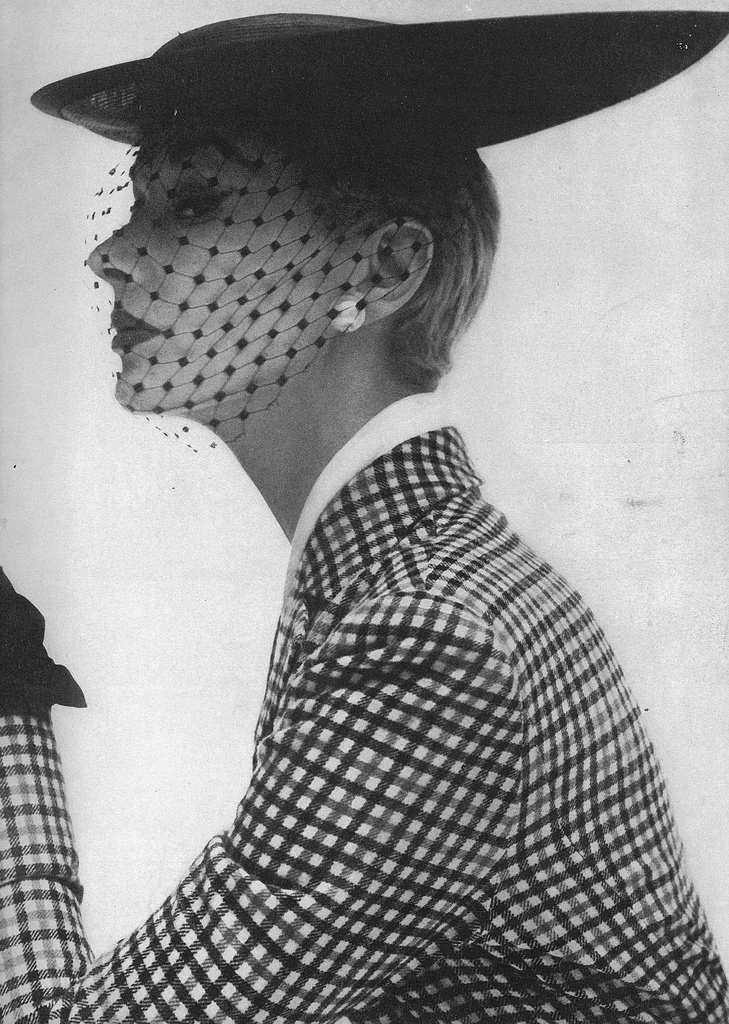
Lisa Fonssagrives-Penn, February Vogue © Irving Penn, 1950
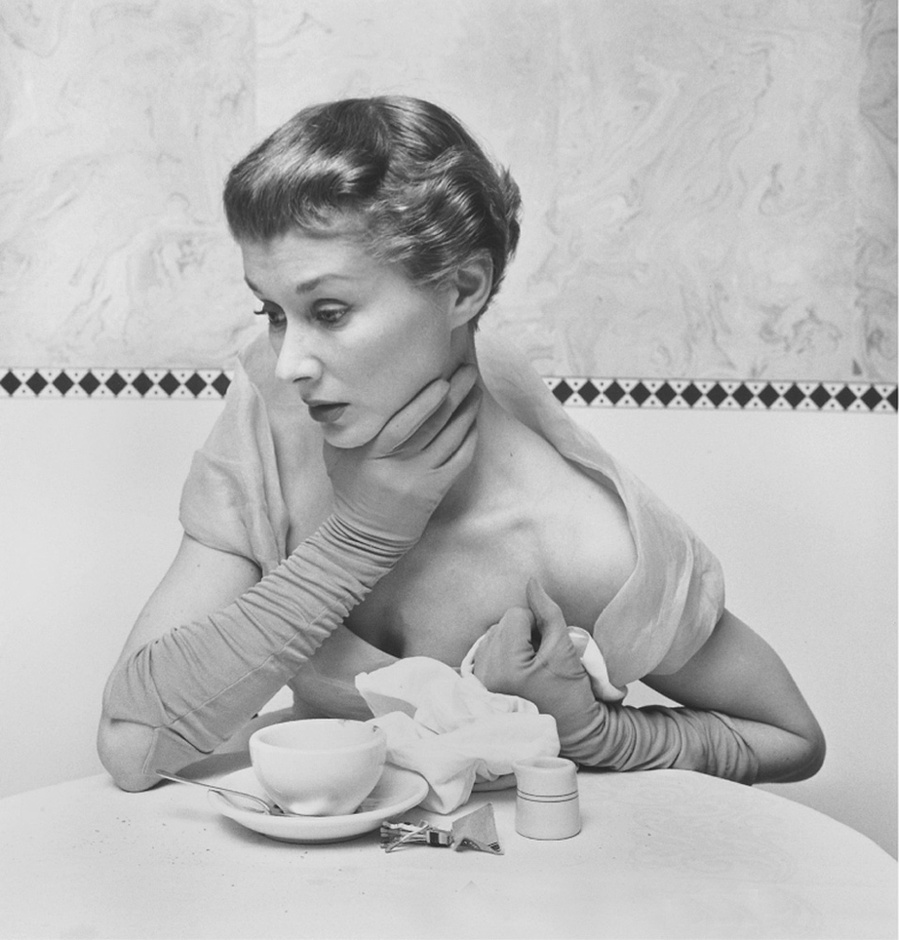
Irving Penn, New York, 1949
Irving Penn
Irving Penn



By Irving Penn, Paris, 1950


Horst

Lisa With Harp, 1939 , Irving Penn
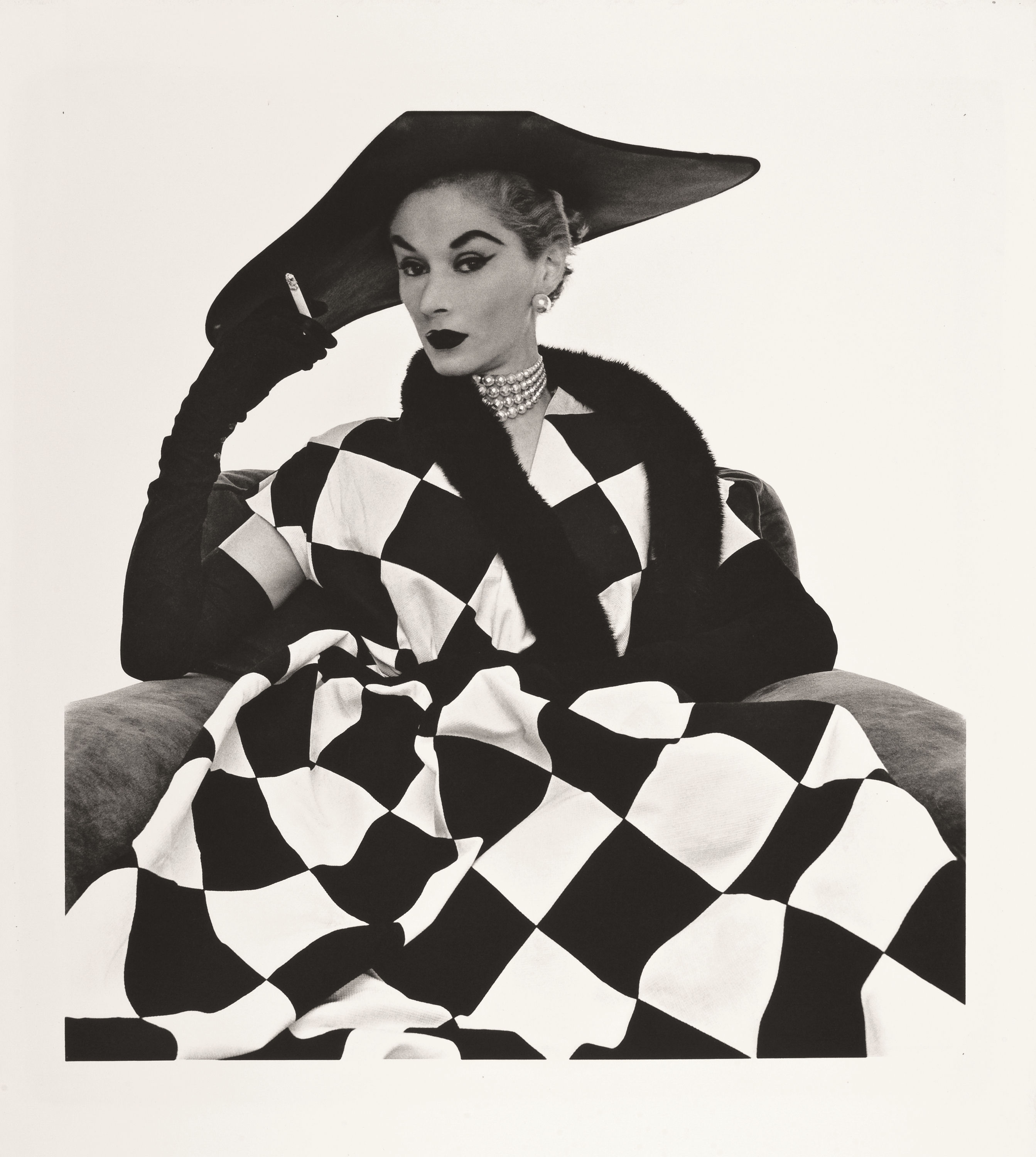
This Irving Penn Harlequin Dress print of Lisa sold for $131,450 in 2011
Penn began reprinting in the 1960s a large majority of his work with the platinum palladium process. The registration bar at the top of the photograph as seen in this example, was common for Penn’s work. It allowed multiple negatives, each containing a particular portion of the photographic scale, to be printed on one sheet of paper. The process of multiple exposures created an image that would not be possible with a single exposure.

Irving Penn: Lisa Fonssagrives-Penn in Balenciaga, 1950

Irving Penn

Irving Penn

Horst P. Horst Lisa Fonssagrives' Hands, New York, 1941
.jpg)
Horst P. Horst Lisa Fonssagrives, New York, 1940

Lisa Fonssagrives by Erwin Blumenfeld

Lisa Fonssagrives for Vogue, 1939, by Erwin Blumenfeld


Lisa Fonssagrives by Lillian Bassman
Lisa Fonssagrives 1947 - photo by John Rawlings.
Fonssagrives was born in Sweden and raised in Uddevalla. As a child, she took up painting, sculpting and dancing. She went to Mary Wigman's school in Berlin and studied art and dance. After returning to Sweden, she opened a dance school. She moved from Sweden to Paris to train for ballet and worked as a private dance teacher with Fernand Fonssagrives, which then led to a modeling career, and she would say that modeling was "still dancing". While in Paris in 1936, photographer Willy Maywald discovered her in an elevator and asked her to model hats for him. Fonssagrives' photographs were then sent to Vogue, and Vogue photographer Horst took some test photographs of her. (She was rather short at 5'7" compared to today's super models.)
Before Fonssagrives came to the United States in 1939, she was already a top model. Her image appeared on the cover of many magazines during the 1930s, 1940s and 1950s, including Town & Country, Life, Time, Vogue, and the original Vanity Fair. She was reported as "the highest paid, highest praised, high fashion model in the business".The down to earth Fonssagrives once described herself as a "good clothes hanger".
She worked with fashion photographers including George Hoyningen-Huene, Man Ray, Horst, Erwin Blumenfeld, George Platt Lynes, Richard Avedon, and Edgar de Evia. She married Parisian photographer Fernand Fonssagrives in 1935; they divorced and she later married another photographer, Irving Penn, in 1950. She went on to become a sculptor in the 1960s and was represented by the Marlborough Gallery in Manhattan.
Fonssagrives died, aged 80, in New York, survived by her second husband, Irving Penn and her two children: her daughter Mia Fonssagrives-Solow, a costume designer, and her son, Tom Penn, a designer.
The Elton John photography collection auction held by Christie's on October 15, 2004 sold a 1950 Irving Penn photograph of his wife, Lisa Fonssagrives, for $57,360 [via wiki]

Sand Fence, Lisa Fonssagrives 1930s

Lisa Fonssagrives at Paddington Station, London, 1951

Lisa Fonssagrives-Penn © Irving Penn, 1949



Lisa Fonssagrives-Penn, February Vogue © Irving Penn, 1950

Irving Penn, New York, 1949
Irving Penn
Irving Penn


“It is
always
the dress,
it is never,
never
the girl.
always
the dress,
it is never,
never
the girl.
I’m just a
good
clothes
hanger.”
good
clothes
hanger.”
Lisa Fonssagrives

By Irving Penn, Paris, 1950


Horst

Lisa With Harp, 1939 , Irving Penn

This Irving Penn Harlequin Dress print of Lisa sold for $131,450 in 2011
Penn began reprinting in the 1960s a large majority of his work with the platinum palladium process. The registration bar at the top of the photograph as seen in this example, was common for Penn’s work. It allowed multiple negatives, each containing a particular portion of the photographic scale, to be printed on one sheet of paper. The process of multiple exposures created an image that would not be possible with a single exposure.

Irving Penn: Lisa Fonssagrives-Penn in Balenciaga, 1950

Irving Penn

Irving Penn

Horst P. Horst Lisa Fonssagrives' Hands, New York, 1941
.jpg)
Horst P. Horst Lisa Fonssagrives, New York, 1940

Lisa Fonssagrives by Erwin Blumenfeld

Lisa Fonssagrives for Vogue, 1939, by Erwin Blumenfeld


Lisa Fonssagrives by Lillian Bassman
Lisa Fonssagrives 1947 - photo by John Rawlings.







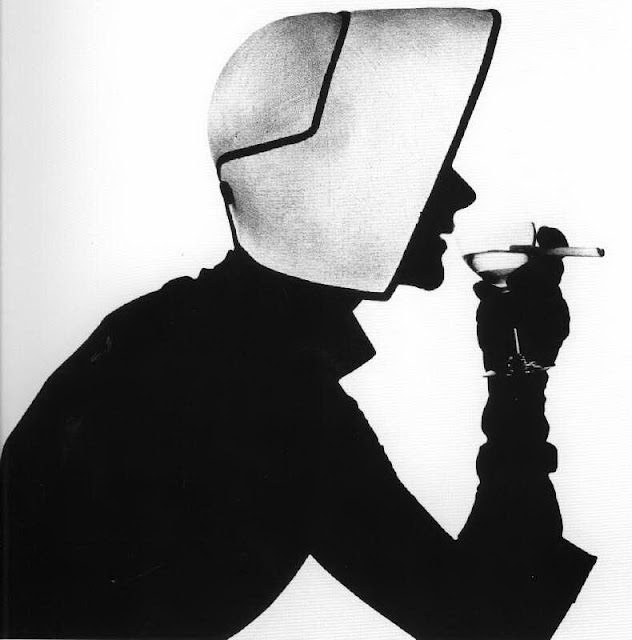




No comments:
Post a Comment